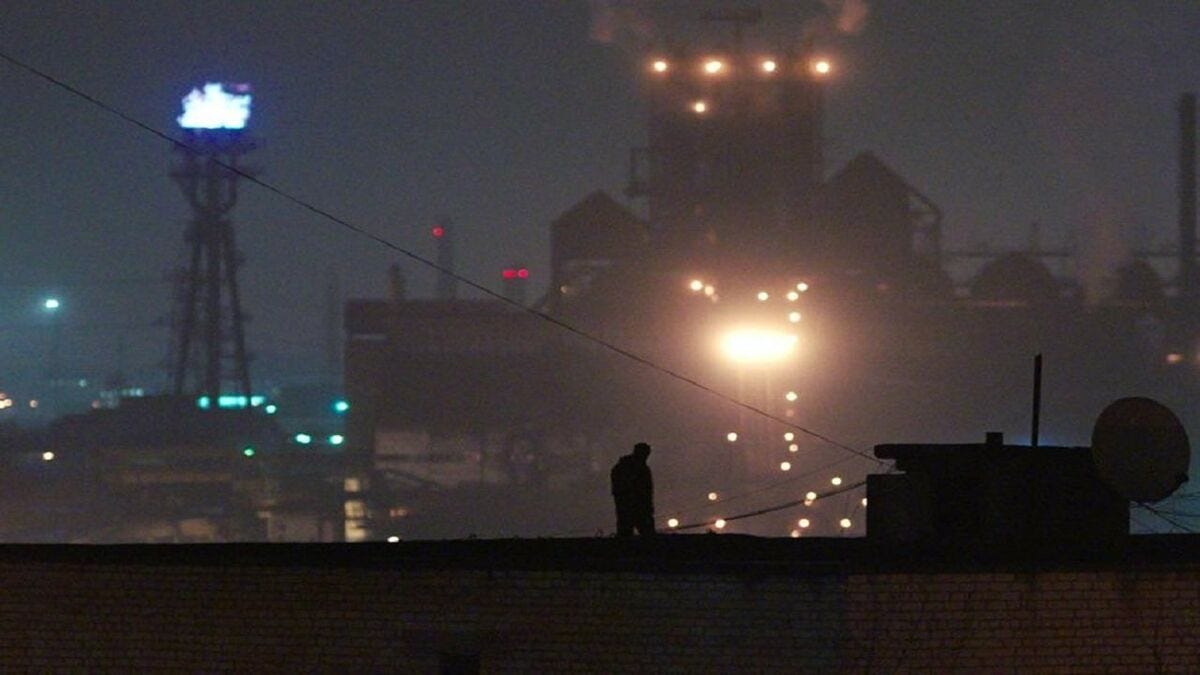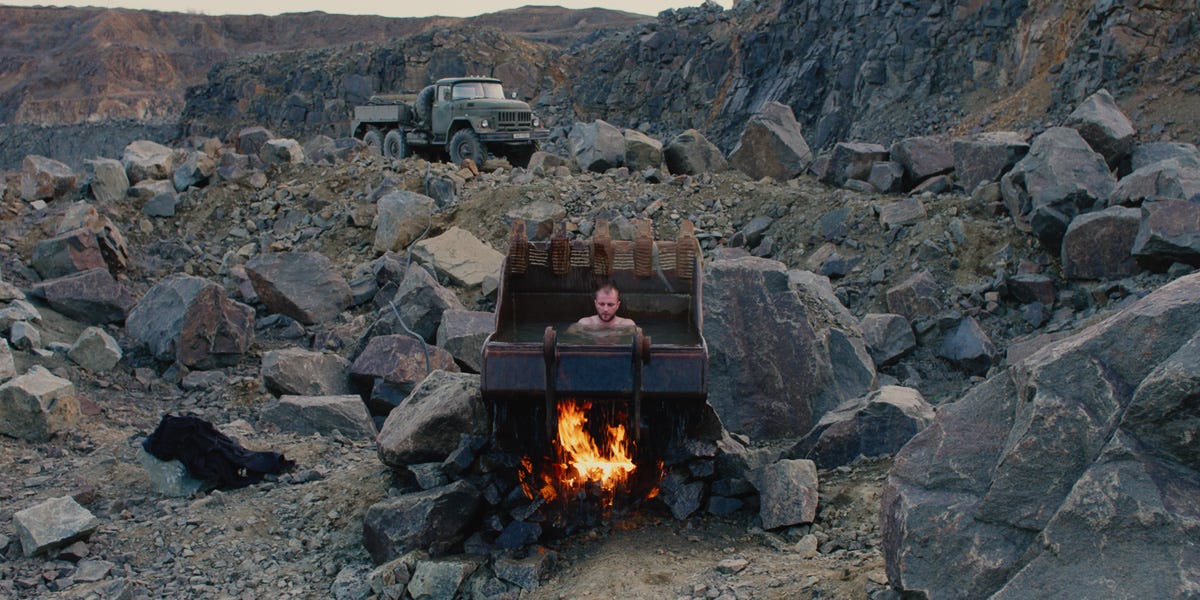Set in 2025 Ukraine “one year after the war,” Valentyn Vasyanovych's Atlantis (2019) envisions post-conflict society as a place torn between reconciling past horrors and forging ahead toward a more sustainable future. People like former soldier Serhiy (Andriy Rymaruk) are the ones who feel the strain of this tension most of all, having committed atrocities in the name of Ukraine’s independence from Russia while also feeling some semblance of hope for what lies ahead.
Constructed of mostly fixed-camera long takes, Atlantis pins the human body against tableaux’s of massive industrial might. Using both wide angle and telephoto lenses to achieve this goal, Vasyanovych shows how puny these characters appear next to epic factory interiors and vast barren landscapes, places either built or destroyed by those who are now dwarfed by the world’s apocalyptic scale.
Nearly every scene features scraping metal or revving combustion engines, and visualizes the rhythm of mankind lethargically turning the gears. No musical score or narrative explanations are present. It’s an impressive feat of mechanized mise-en-scene that carries the film through it’s gripping first half.
Underneath this formalist facade lies the anger and resentment of those military personnel who feel left behind by their new government and those fellow citizens who still align with Soviet doctrine. Serhiy lashes out multiple times, once during target practice (he shoots a fellow combat veteran in his Kevlar vest) and later after that same man has committed suicide by molten lava.
But Vasyanovych also examines Serhiy’s capacity for empathy. After taking a job driving water rations to military camps all over the country, he meets two stranded volunteers from an organization that specializes in locating and identifying dead conscripts from the war.
After helping them make it to their destination, he offers to assist in future exhumations of graves. Considering the film’s harrowing infrared shot of three soldiers brutally killing a man before burying his body, this feels like a way for Serhiy to make amends for the past atrocities he may have committed.
If anything, the film’s second half is less gripping because it dedicates too much time and energy to Serhiy’s potential revival of spirit. It just feels out of sync with the film’s dystopian aesthetics, which obviously lend better to representing the soul-crushing reality of its medieval visages.
Faulting Atlantis for ultimately embracing hope might be a bit petty, but by the end I couldn’t help but feel this was a false note compared to the windswept, war torn world of freezing cold that Vasyanovych spent nearly two hours of runtime building.
Still, there’s plenty to admire about Atlantis, especially the strikingly bleak compositions that do such a superb job of portraying the toxicity seeping out from every pore of our now scorched Earth.
Obviously influenced by Fritz Lang’s silent films, the black-and-white masterpieces of Béla Tarr, and Andrei Tarkovsky’s Nostalghia (1983), Vasyanovych conducts an indelible autopsy on humanity’s seemingly organic ability to self destruct. I’m just not convinced of his somewhat optimistic findings that we’d be able to preserver despite it all. Cinematically, Atlantis just makes too powerful an argument that we’re fucked.
Atlantis is Ukraine’s submission for the 2021 Academy Awards. It’s now available to stream on VOD thanks to Grasshopper Film.





